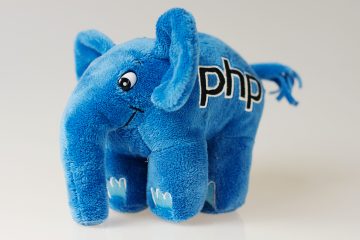OPcache improves PHP performance by storing precompiled script bytecode in shared memory, thereby removing the need for PHP to load and parse scripts on each request. This guide describe its installation on Debian.
This howto is tested on:
- Debian 10.0 Buster
Requirements
This howto requires:
- a HTTP server with PHP support, as described by Install PHP-FPM on Debian.
- php-tools, command-line tool easing PHP configuration.
Installation
Detect if sudo is available (“command” is used if not):
cmdProxy='command'
command type -f 'sudo' &>'/dev/null' && cmdProxy='sudo'Detect the version of PHP installed on the system:
phpVersion="$(command realpath '/usr/bin/php' | cut -c 13-)"Install the software:
${cmdProxy} apt-get install "php${phpVersion}-opcache"Enable APCu and set its memory cache size:
${cmdProxy} php-tools --add-mod --mod-priority=50 --mod-name='opcache-settings' \
--mod-settings="; OPCache settings
; priority=50
opcache.enable = 1
; allow opcache use for PHP cli.
opcache.enable_cli = 1
; Memory cache size.
; recommended value is 2.5 * PHP total code base size (across sites).
opcache.memory_consumption = 64M
; Max cached files
; recommended value is to count the total number of PHP files on server:
; # command find / -type f -name "*.php" | command wc -l
; another possibility is to set a very large value (up to 100 000):
opcache.max_accelerated_files = 10000
; check for PHP files timestamps changes (I/O intensive).
opcache.validate_timestamps = 1
; revalidate timestamps validity every X seconds.
opcache.revalidate_freq = 300
; revalidate cache by checking original file contents (I/O very intensive):
opcache.revalidate_path = 0
; maximum wasted memory before opcache restart (default to 5).
; opcache.max_wasted_percentage = 25"Reload the configuration:
${cmdProxy} php-tools --reloadThanks
- Thanks to MNT-TECH (fr) for Fonctionnement et configuration d’OPcache (fr).



0 Comments